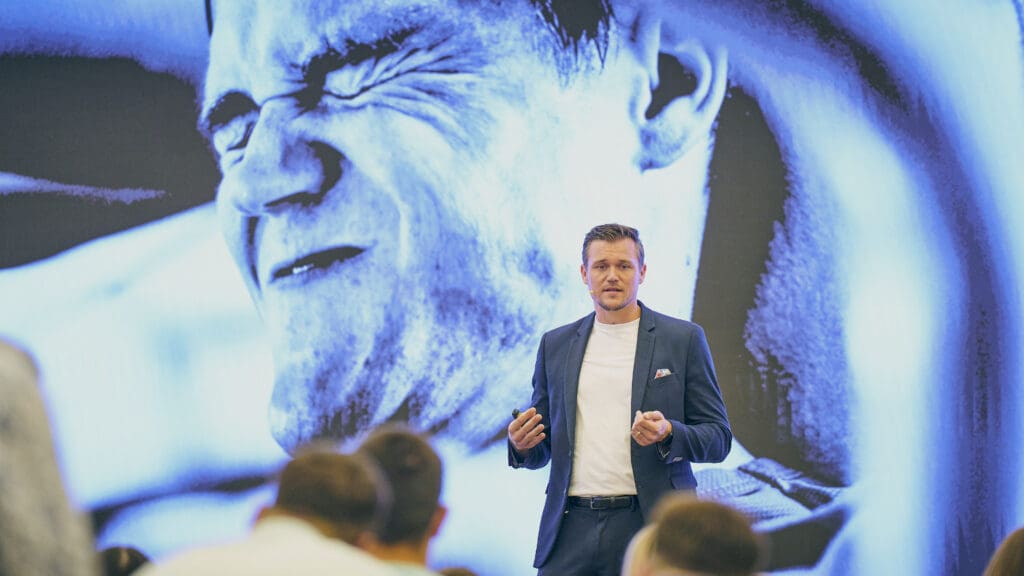24 years there was no Olympic gold for the German Rowing Mens‘ Eight. Continuing as before was therefore not an option for Andreas Kuffner and the Team Deutschlandachter. On the way to the Olympic Games 2012 in London, the team decided instead to approach things differently and critically and to ask themselves the same simple question in every single conversation, every single decision and action: „Do we really make the boat faster with what we do?
On their journey, they learned sustainable, reliable techniques that set them on the path to their Olympic gold medal. Andreas Kuffner, born in 1987, is now an Olympic champion and silver medallist in the German eighth. He was World Champion, several times European Champion and won 8 medals at World Cups, including seven gold medals. In his 16-year sporting career, he received the Silver Laurel Leaf twice – the highest sporting award in the Federal Republic of Germany. In addition to all his sporting successes, he successfully completed his master’s degree in industrial engineering and business administration and his qualification as a systemic personal & business coach.
Today he is a certified coach and organizational and team developer. For seven years Andreas Kuffner has been active as a keynote speaker for companies from various industries.
Andreas Kuffner’s „Eighth“ sense: „Do we make the boat faster?
His stories are not only motivating, but also practical and applicable. In his speeches, Andreas takes his audience on a personal journey to two Olympic medals – on land and at water. A journey on which the inner pig-dogs and the will to win, holding on and letting go, deep conviction and fearful doubts sit in one boat and finally become a winning team.
Andreas talks about how to deal with changes and setbacks as well as about the development of the Germany Eight and the importance of a culture of mistakes on the successful way to two Olympic Games.
In his lectures, Andreas Kuffner emphatically shows how important high relationship quality and resonance are for high-performance teams in order to increase the quality of cooperation. Especially in times of high dynamics of change, the quality of relationships between the people involved is the most important basis for success – not only in sport!


 austria
austria
 switzerland
switzerland




